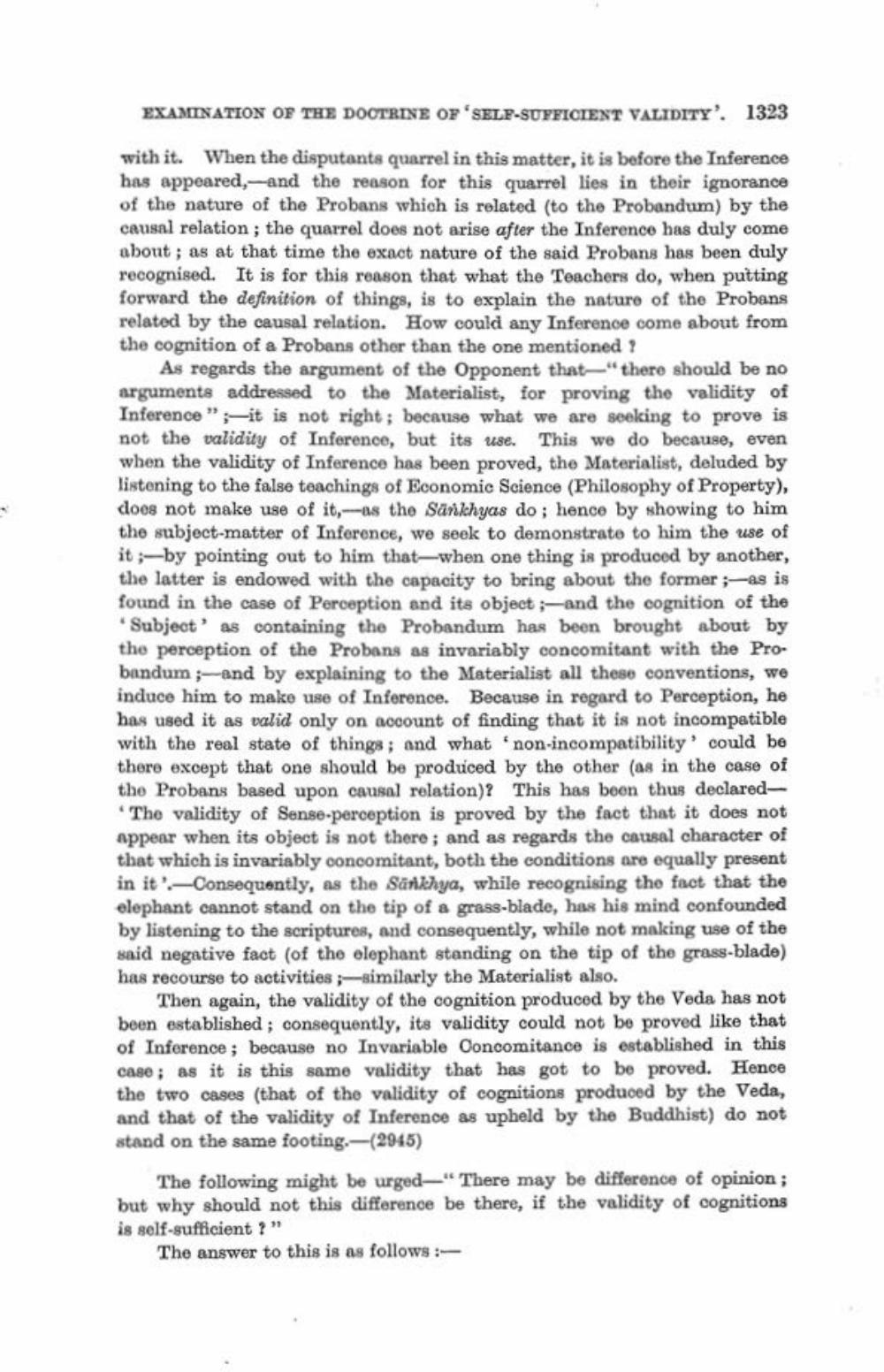________________
EXAMINATION OF THE DOCTRINE OF 'SELF-SUFFICIENT VALIDITY'. 1323
with it. When the disputants quarrel in this matter, it is before the Inference has appeared, and the reason for this quarrel lies in their ignorance of the nature of the Probans which is related to the Probandum) by the causal relation; the quarrel does not arise after the Inference has duly come about ; as at that time the exact nature of the said Probans has been duly recognised. It is for this reason that what the Teachers do, when putting forward the definition of things, is to explain the nature of the Probans related by the causal relation. How could any Inference come about from the cognition of a Probans other than the one mentioned ?
As regards the argument of the Opponent that "there should be no arguments addressed to the Materialist, for proving the validity of Inference " ;-it is not right; because what we are seeking to prove is not the validity of Inference, but its use. This we do because, even when the validity of Inference has been proved, the Materialist, deluded by listening to the false teachings of Economic Science (Philosophy of Property), does not make use of it, as the Sanlehyas do; hence by showing to him the subject matter of Inference, we seek to demonstrate to him the use of it ;-by pointing out to him that—when one thing is produced by another, the latter is endowed with the capacity to bring about the former ;-as is found in the case of Perception and its object ;-and the cognition of the *Subject' as containing the Probandum has been brought about by the perception of the Probans as invariably concomitant with the Probandum ;-and by explaining to the Materialist all these conventions, we induce him to make use of Inference. Because in regard to Perception, he has used it as valid only on account of finding that it is not incompatible with the real state of things; and what non-incompatibility could be there except that one should be produced by the other (as in the case of the Probans based upon causal relation)? This has been thus declared "The validity of Sense-perception is proved by the fact that it does not appear when its object is not there ; and as regards the causal character of that which is invariably concomitant, both the conditions are equally present in it', -Consequently, as the Sankhya, while recognising the fact that the elephant cannot stand on the tip of a grass-blade, has his mind confounded by listening to the scriptures, and consequently, while not making use of the said negative fact (of the elephant standing on the tip of the grass-blade) has recourse to activities similarly the Materialist also.
Then again, the validity of the cognition produced by the Veda has not been established ; consequently, its validity could not be proved like that of Inference ; because no Invariable Ooncomitance is established in this case; as it is this same validity that has got to be proved. Hence the two cases (that of the validity of cognitions produced by the Veda, and that of the validity of Inference as upheld by the Buddhist) do not stand on the same footing.-(2945)
The following might be urged-" There may be difference of opinion; but why should not this difference be there, if the validity of cognitions is self-sufficient ?”
The answer to this is as follows:




